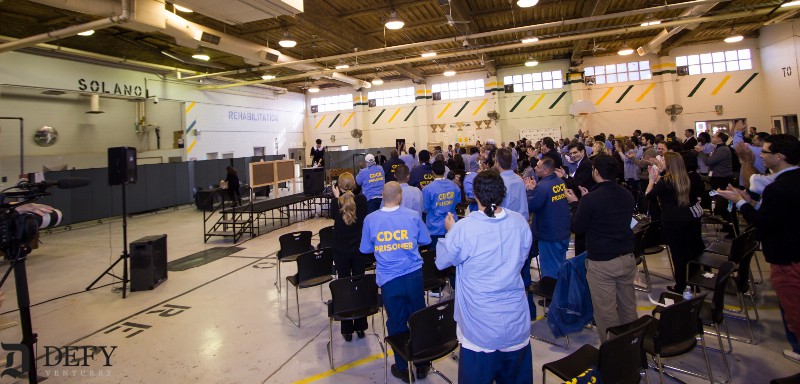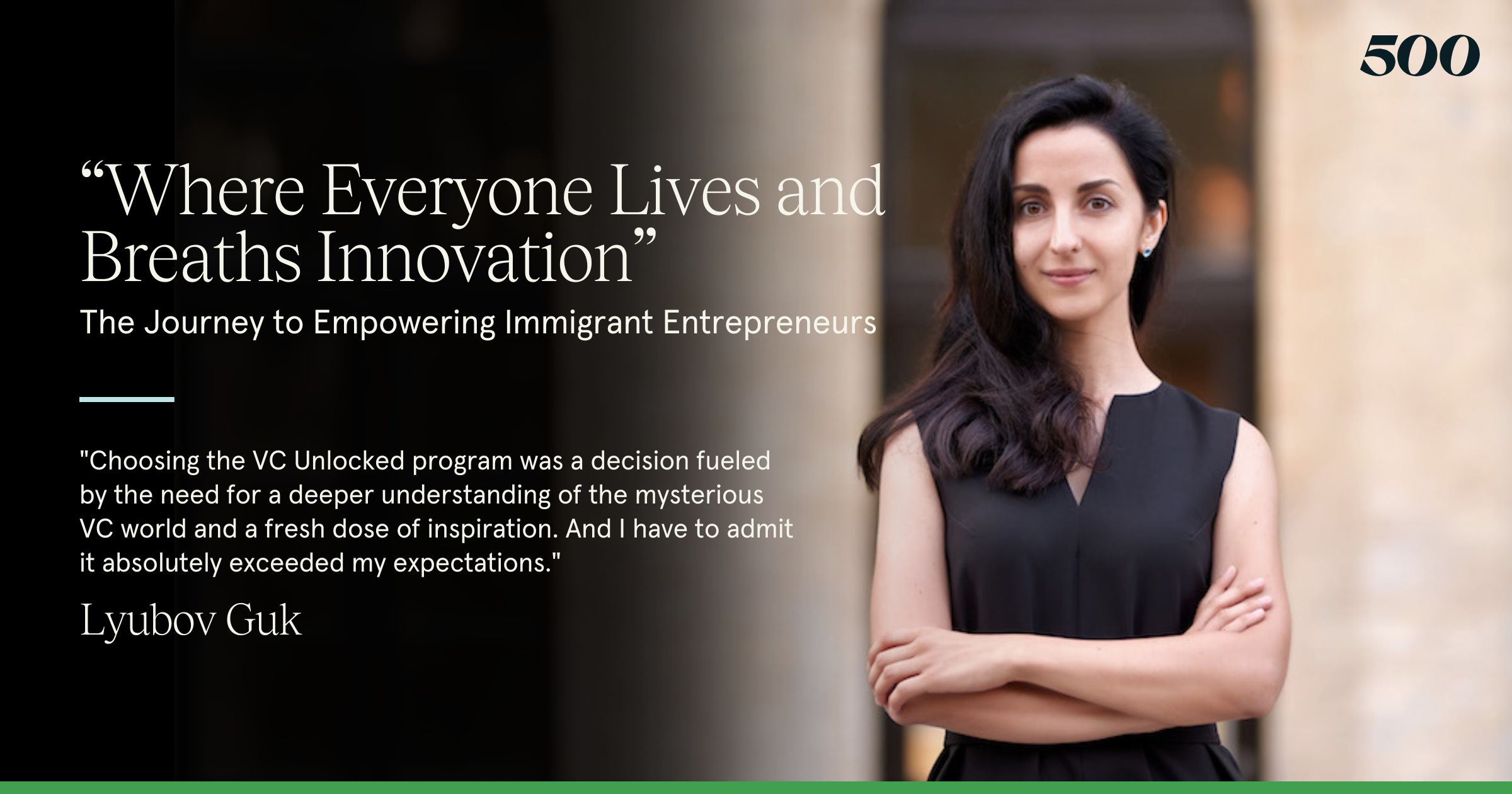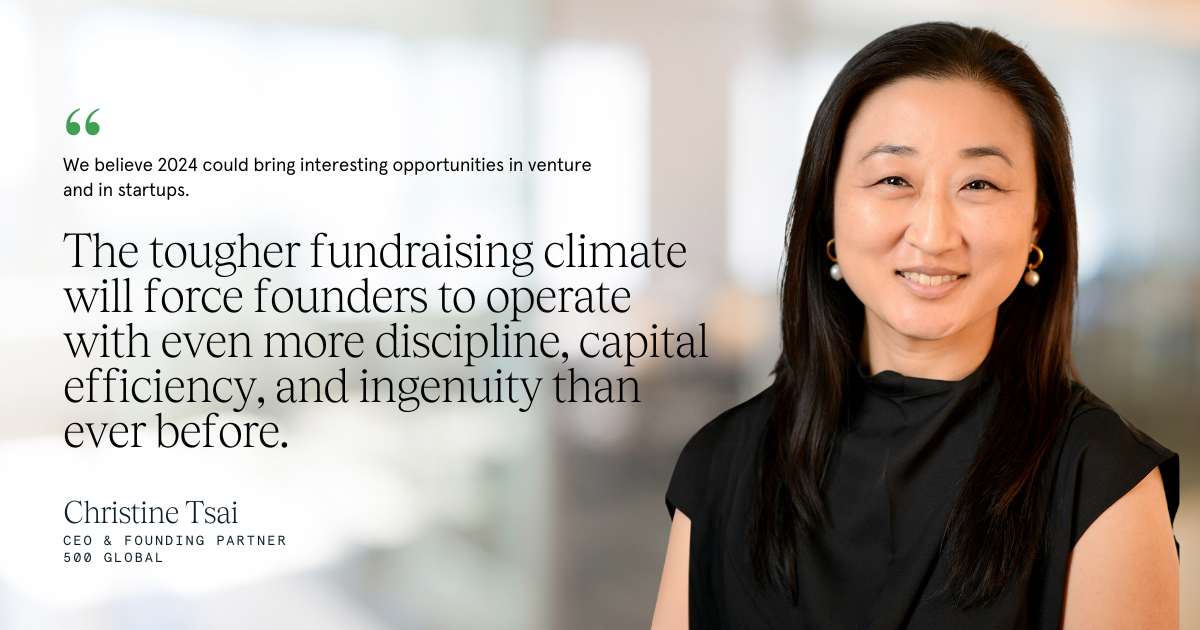Yesterday, I battled torrential rain and excruciating traffic in a 2.5 hour drive up to Vacaville. Needless to say, I wasn’t in the best mood when I finally arrived at my destination — Solano State Prison. However, the grumpiness melted away immediately when I was greeted by one of the guards.
He was the polar opposite of what I would expect from someone guarding the entrance of a prison — cordial, friendly, and mild mannered. With a warm smile on his face, he asked me if the drive was okay, which bridge I took. Then, after directing me to the right parking lot and where to go, he bid me a kind farewell.
Not at all what I expected. It was just one of many surprises in store for the day.
It was my first time in prison. I was there to volunteer with Defy Ventures, along with 500 teammates Tara Graham, Brian Wang, and Aerin Lim. While I didn’t feel particularly scared about going to prison, I had no idea what to expect.
Was Defy really as amazing as I had heard from my colleague Andrea Barrica ?
Would I end up feeling unsafe in any way?
Would we have real impact on the EITs? (Entrepreneurs-In-Training — the inmates participating in the Defy program)
I was blown away by the experience and found myself surprised many times. I’d like to share a few thoughts below.
The irony is that none of these things are legitimate surprises or brand new information. Rather, they all seem like common sense. However, you don’treally get it until you’ve seen it for yourself.

1. Inmates and Volunteers Aren’t That Different.
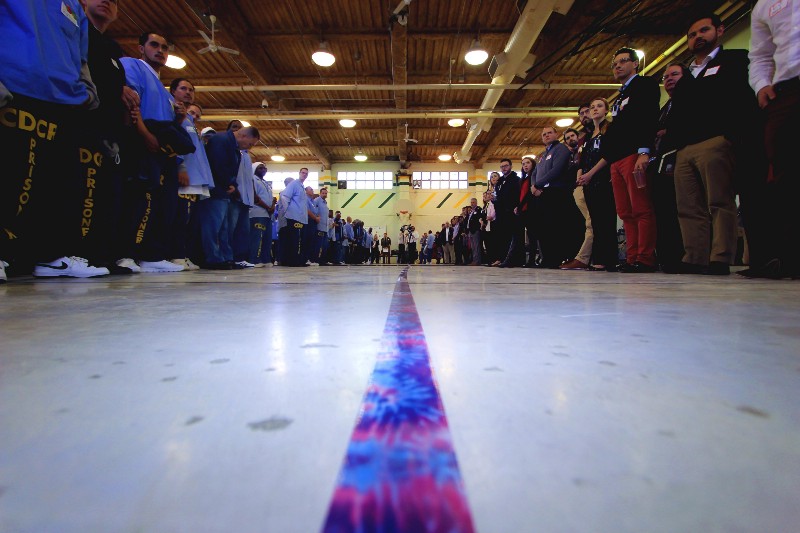
In fact, we are shockingly similar. The morning kicked off with a series of ice breakers led by Catherine Hoke (Defy Founder & CEO). One of them was an exercise where a line was taped down in the middle of the room. EITs and volunteers stood on opposite sides of the line. Catherine would then read aloud statements, and people on either side would step to the line if it applied to them.
They ranged from light-hearted (“I like hip-hop”, “I like country music”)….
…to a little more personal (“I graduated from a 4-year college”, “I dropped out of high school”)…
…to really personal (“I lost one of my parents before the age of 18”, “I grew up in a neighborhood where gunshots were heard regularly”, “I’ve committed a violent offense whether or not I was caught”)…
…to introspective (“I feel like I constantly judge myself”, “There are things in life that I haven’t yet forgiven myself for”).
At one point, I teared up because I realized many things about myself, but also because I saw emotion and pain seep into the eyes of both the EITs and my fellow volunteers.
It was particularly moving to see when EITs and volunteers both stepped to the line after a statement was read. Seems that in some cases, volunteers had the fortune of not getting caught and had the support network to keep them from going down the wrong path. Not surprisingly, most of the inmates didn’t.
2. Inmates Aren’t Criminals.
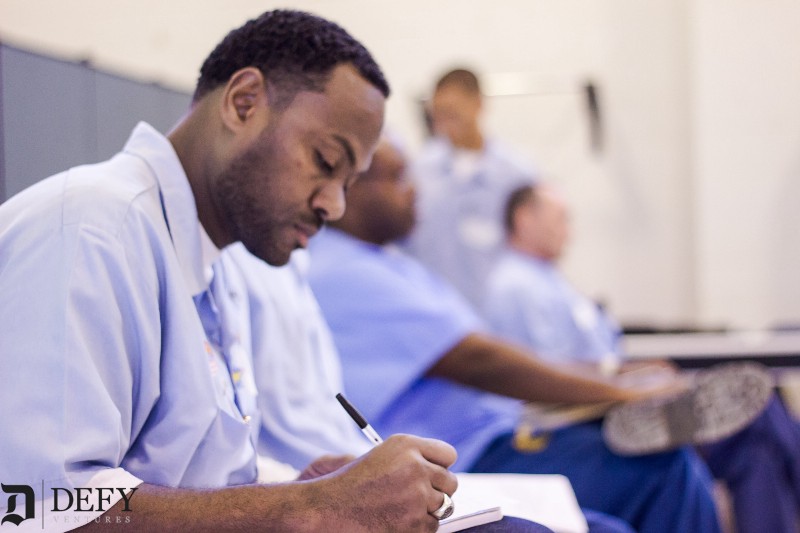
This may be a controversial statement. But yesterday’s visit reminded me that an overwhelming majority of inmates are people who weren’t given the same kind of opportunity as the volunteers. When you grow up in poverty, suffer from abuse, live in a violent neighborhood, come from a broken home, lack positive role models, are told you’ll never amount to anything, etc, the challenges are enormous. It brings a whole new meaning to #firstworldproblems.
In 1:1 conversations with EITs, I was surprised that I felt a little embarrassed of my upbringing. More specifically, I was embarrassed because I felt like I’ve taken it for granted.
For example, one of the statements from the line exercise was “I lost my innocence at the age of [X]”. (Catherine kept ratcheting down the age to see who stayed on the line) One EIT told me he lost his innocence at the age of 5, when he was almost beaten to death by a grandparent. All my “hardships” suddenly paled in comparison. In fact, I had a tough time even answering the question of “I knew I lost my innocence when…” because none of my experiences seemed relevant.
Catherine hates pity. And I hope that’s not how this comes off. Rather, it’s to emphasize another thing she said. Inmates aren’t criminals. Inmates are people who committed crimes. They don’t want to be remembered for the worst thing they ever did in their life.
Granted, crimes aren’t necessarily something to be condoned or downplayed. Many of the inmates were convicted of murder. I’ve lost a relative to murder in an armed robbery. However, when you begin to understand the life circumstances and cards that the inmates were dealt in life, it allows you to be more compassionate and open your mind to the idea that they did a bad thing — but they’re not bad people.
The EITs didn’t want pity, nor did they want handouts. They wanted to be treated like peers and get brutally honest feedback. As the day went on, the EITs seemed less and less like inmates, and more and more like colleagues. There were no barriers separating us. We sat side by side. We shook hands. We laughed and danced together.
Inmates are sons, fathers, brothers, cousins, nephews, and friends. Like any human being, they’re not perfect.
3. Racial Inequality Is REAL.
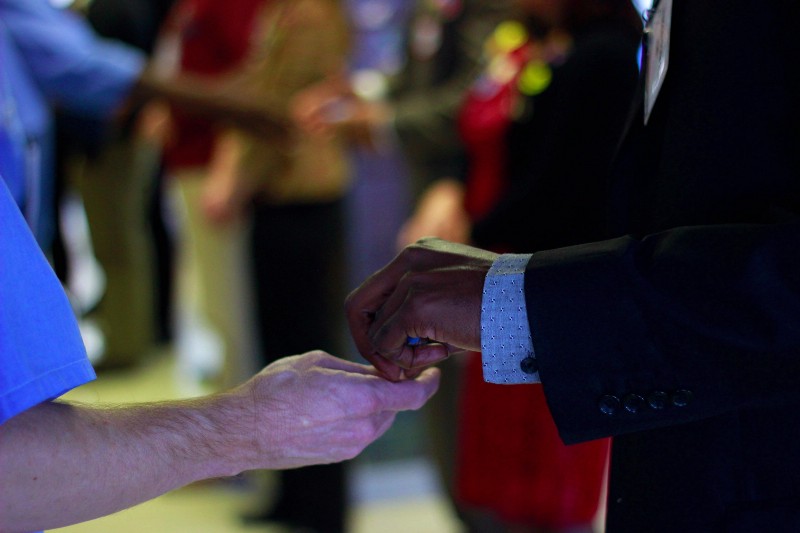
You don’t need to visit a prison to know that racial inequality exists. There’s enough talk about it, especially in Silicon Valley, to know that there’s a diversity problem.
However, it’s a different story when you visit a prison. When you see what I saw, you’ll know it in your heart.
This too may be a charged topic. But I’ll say my piece. There is something fundamentally wrong when the overwhelming majority of the inmate population is Black and Hispanic. Again, this was something that I was aware of. Most people are. But when I saw it for myself in person (both at the Defy event and when walking on the prison grounds to/from the prison entrance), I was floored.
This isn’t limited to Solano. Almost 60% of the U.S. incarcerated population is comprised of Black and Latino prisoners. The US makes up 5% of the world population, yet holds 25% of the world’s prisoners.
As a society, we’re failing. In so many ways. Such high incarceration rates of underrepresented minorities ultimately means we’re missing out on great potential from Black and Latino communities. Yes, there’s immense talent brewing even within the most impoverished neighborhoods. Talent is universal, but opportunity is not. Never was this more clear than when I interacted with the EITs yesterday.
How do we solve this? Unfortunately the solution(s) is as multi-faceted and complex as the problem. But as my favorite quote goes, An ounce of action is worth a ton of theory. It’s encouraging to see groups like Defy actually DOING something to enact change.
4. Transformation Requires Relentless Optimism & Gratitude.
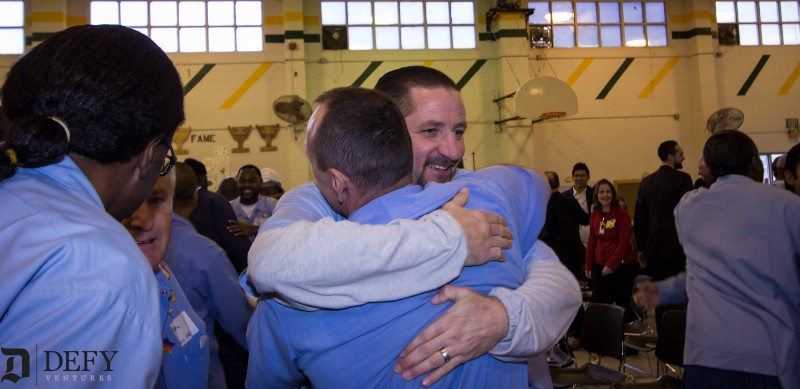
As I mentioned earlier, the day began with a few ice breakers. For example, giving each other bear hugs, repeating affirmations, performing the Chicken Dance, etc. I’ll admit I thought a few were a little corny. But looking around the room, I was amazed at how engaged the EITs were and how much respect they had for Catherine and Defy. No one was rolling their eyes or slouching in a corner. Even with small exercises, they were present.
They were eager to hear feedback on their personal statements, resumes, mock interviews, and their business proposals, and the ones I coached took the feedback to heart.
But what struck me more than their optimism? Their gratitude.
The EITs expressed so much thanks to the volunteers. I can’t tell you how many of them approached me and shook my hand, thanking me for spending the day with them — even ones I hadn’t interacted with 1:1.
Change is not easy. Defy is not an easy program to complete. But I witnessed a group of men who possessed so much optimism and gratitude that it put me to shame. Many of them already have changed, and Defy is helping them get that second chance in life. Catherine is like no other when it comes to relentless optimism and gratitude.
**
Volunteering one day with Defy doesn’t make me a saint. I don’t know whether I actually helped anyone in the long run. But I’m hopeful that such small acts (by a lot of individuals) ultimately have a real impact on the lives of these EITs, and in turn begins to address the complex problems that currently exist in our society. Never underestimate small acts of kindness — aka microcompassions.
For me, the entire experience was especially meaningful because I have personal connections to a couple people who are incarcerated. By helping the EITs, I felt that in some roundabout way, I was helping them. And I hope that someday, I’ll see them again on the outside.
Many thanks to the Defy team, the staff at Solano State Prison, and most of all the Defy EITs for having us yesterday.
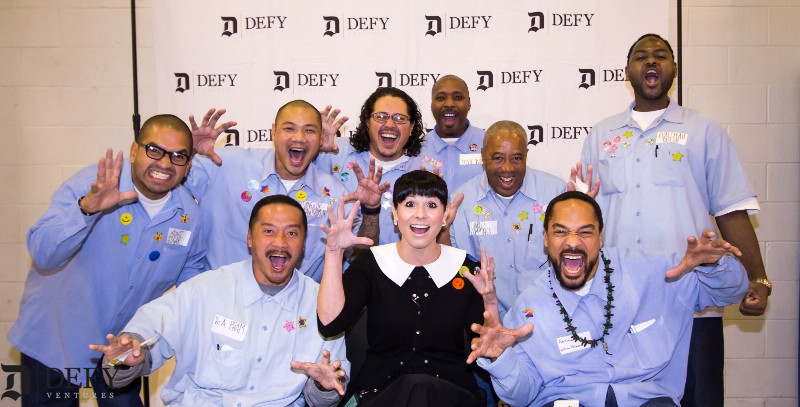
Special thanks to Andrea Barrica, Mark Saldaña, Tara Graham, Brian Wang,Aerin Lim, and Monique Woodard for reviewing this post.
